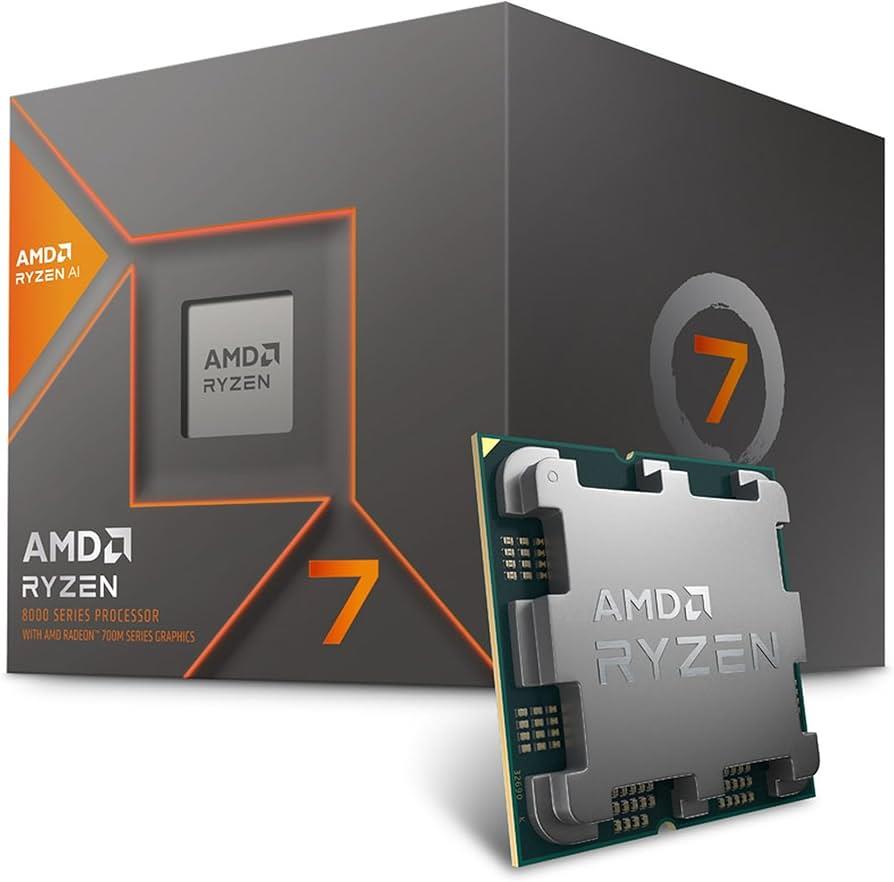
Battle Of The Mainstream 8-Core Chips: AMD's Ryzen 7 Vs Intel's Core Ultra 7

The competition between the AMD Ryzen 7 9800X3D and the Intel Core Ultra 7 265K highlights a deeper shift in desktop CPU design and market dynamics for 2025. While both are positioned for high-end users, their strengths lie in distinct directions: AMD emphasises gaming cache architecture, whereas Intel leans into hybrid core layouts and productivity-oriented features.
In gaming performance, the Ryzen 7 9800X3D retains a marked lead. Independent testing assigns it the title“fastest gaming chip on the planet,” showing up to 35 % higher frame-rates at 1080p than Intel's current-gen flagship. Its architectural advantage centres on the second-generation 3D V-Cache, which places additional L3 cache directly beneath the cores to accelerate gaming workloads. For pure gaming, many reviewers conclude that AMD remains the superior choice.
Intel's Core Ultra 7 265K, built on its Arrow Lake architecture, presents a more mixed picture. On productivity and threaded workloads it performs competitively-some benchmarks show it approaching or matching AMD's non-X3D chips. However, Intel's own efforts to promote the chip emphasise“value for money” in gaming settings rather than outright dominance. More critically, some reviews identify shortcomings: reviewers have flagged higher memory latency and a perceptible drop in gaming margin compared to prior-generation Intel chips.
Platform and architecture differences amplify that divergence. The Ryzen 7 9800X3D sits on AMD's AM5 platform, benefitting from long-term support, energy-efficient Zen 5 cores, and game-centric cache design. Intel's 265K uses the new LGA 1851 socket, dedicated DDR5 memory and hybrid P-core/E-core configuration, plus built-in NPU and Arc-GPU features in some SKUs. For users who prioritise creative workloads-video editing, rendering, simulation-the Intel chip may hold appeal due to its broader workload responsiveness.
See also Meta Partners with Circus SE to Expand AI Models in DefenceFrom a value perspective, many analysts now see the Intel chip's proposition as nuanced: the 265K delivers solid productivity and good gaming, but pays less for extreme gaming headroom than AMD's X3D offering. This has helped contribute to shifts in market share: according to Steam's hardware survey, over 40 % of gamers now use AMD CPUs, up from roughly 37 % a year earlier. That suggests AMD's dominance in the gaming-centric part of the market is growing.
Thermals and power constraints also matter. The Ryzen 7 9800X3D's stacked 3D cache enables sustained boost behaviour in gaming while keeping energy use moderate for its segment, though it still requires good cooling. Intel's 265K, while competitive, faces scrutiny in reviews for higher latency and thermal margins in game-heavy scenarios. One tech community commented that despite Intel's“on paper” improvements, real-world gaming benefits were marginal.
Beyond specs and benchmarks, upgrade strategy plays a role. AMD's AM5 ecosystem promises further Zen 6 compatibility, making the Ryzen 7 more future-proof in some users' eyes. Intel's new socket and architecture signal investment, but early‐feedback suggests its launch did not deliver significant generational uplift in all segments. For consumers building or upgrading aggressively for gaming, the Ryzen may give more“headroom” over multiple years.
In summary: For users whose priority is highest-frame-rate gaming on maximised settings, the Ryzen 7 9800X3D stands out as the best performer. For those whose workflows are mixed-gaming plus content creation, editing, budget-conscious productivity-the Intel Core Ultra 7 265K offers strong value and a capable balance. The gap is narrowing in productivity, but gaming vantage still favours AMD.
See also Hub71 and New Jersey Forge First US Tie-up for StartupsNotice an issue? Arabian Post strives to deliver the most accurate and reliable information to its readers. If you believe you have identified an error or inconsistency in this article, please don't hesitate to contact our editorial team at editor[at]thearabianpost[dot]com. We are committed to promptly addressing any concerns and ensuring the highest level of journalistic integrity.
Legal Disclaimer:
MENAFN provides the
information “as is” without warranty of any kind. We do not accept
any responsibility or liability for the accuracy, content, images,
videos, licenses, completeness, legality, or reliability of the information
contained in this article. If you have any complaints or copyright
issues related to this article, kindly contact the provider above.

















Comments
No comment